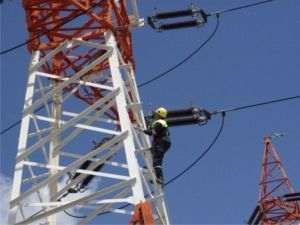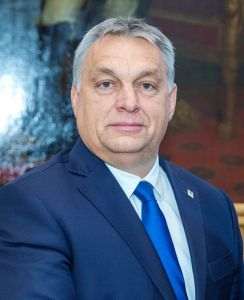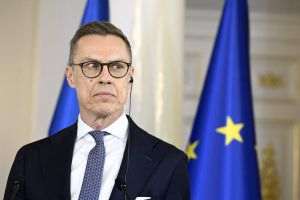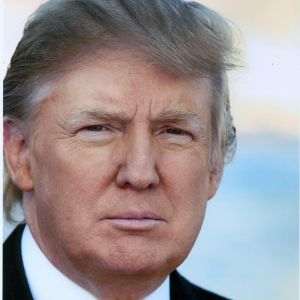Reporter: Your Excellency, what is your opinion on the events in Syria and the situation in the Middle East, in general?
Bahador Aminian Jazi: For some time now, the situation in Syria has been one of the most important issues, on an international as well as on a regional level.
The main danger we can identify is the expansion of terrorism, the expansion of extremist movements, of the Al-Qaeda network, etc.
It is true that between the Syrian state and certain opposition factions there are points of contention, but now, terrorist factions, for example Al-Qaeda, have sent their most dangerous men to Syria to spread extremism.
The foreign countries arm these terrorist factions and also provide them with financial support.
If any of those returned to their countries of origin, they would be captured and convicted. In turn, in the Syrian conflict, the extremist terrorist factions benefit from the support of some foreign countries, due to various political interests in the region, an aspect which will lead to destabilization in the area.
Similar situations have occurred before, for example in Afghanistan, where certain countries supported the Taliban, by providing them with logistical support and military training, and they then turned against the West, as proven by the events of September 11th, in the United States of America.
The propagation of this model in Syria as well, by supporting the terrorist networks that are fighting against the regime in Damascus, leads to the creation of a situation which is dangerous for the entire region, included Iran.
The second question concerning Syria deals with the increased interest of the Western in what is happening in the region.
Why are other countries getting involved in Syria's internal affairs, why do they supply weapons to the terrorist factions fighting against Assad? Isn't Syria united and independent so it can deal with its own problems? Isn't the international system ruled by certain laws and provisions? Based on what international regulation are the US allowed to intervene in Syria?
There are only two situations when another state can get involved and intervene militarily in the internal affairs of another state: with the approval of the European UN Council or based on the Resolution 51 of the UN Charter, which stipulates the countries' right to self defense. Any military intervention that does not comply with those two conditions is an act of aggression.
It isn't normal or fair for a state that is more powerful than another to intervene militarily or through other channels in another country's domestic policy.
Unfortunately, in the case of Syria, a dangerous precedent is being created, according to which the country that is more powerful, the US, can force its will upon on other countries, without complying with international rules and regulations.
So now, the law of a civilized world is replaced with the law of the jungle, where the most powerful country can act as it pleases, with the situation in Syria setting a precedent for that.
As such, whenever someplace else in the world, occurs, a more powerful country will have the ability to come and "kick in the head" another country, even while violating the international regulations.
Reporter: What is your opinion on the use of chemical weapons in Syria?
Bahador Aminian Jazi: Iran is complete1y against the use of chemical weapons, our very own people was the "victim" of such an attack, during the time when Saddam Hussein was leading Iraq.
At the time, Iraq used chemical weapons which were supplied to it by some Western countries, as was later proven. Companies from Holland and Germany were accused of supplying chemical weapons to Saddam Hussein's regime, which he used against thousands of Iranian fighters and even against civilians, both in Iran and Iraq. At the time, no one condemned the actions of Saddam Hussein.
In an article of the "Foreign Policy" magazine, which was published very recently, some CIA documents are made public, which prove that between 1983-1988, even though they knew that Iraq was using chemical weapons against the Iranian troops as well as against civilians, and against its own citizens, they have supported Saddam Hussein and have supplied to him strictly secret information concerning the position of Iranian troops in the war between Iran and Iraq.
A few months ago, several pieces of news were published concerning the shipment of chemical weapons, through Turkey, by the terrorist factions in Syria, and in Turkish city Adana 12 people were arrested for their involvement in this case, which was even discussed on Turkey's National Security Council. Also, both Iran and Iraq had warned that the terrorist factions are arming themselves with chemical weapons, and nine months ago Iran had informed the US about this fact.
Therefore, because Iran has also suffered as a result of chemical weapons, the government in Tehran will continue to condemn any aspect relating to this topic.
As for Syria and the accusations being made against it, there is no evidence that the Syrian army was the one that used chemical weapons.
The United States only claim to have proof of the chemical weapons used by the regime in Damascus, but they have yet to show any evidence.
Thus, based on nothing else but some information they have handed over to the press, the US wants to attack Syria.
Furthermore, the Syrian authorities have authorized the UN commissioners to come to Damascus for investigations, so that they can verify whether chemical weapons were indeed used.
According to the legislation and to international law in effect, those that investigate this kind of situations have to present a report, after the investigation is over, and based on that document, the authorities need to decide on the course of action.
Even though, according to the law, the US was not allowed to make a decision without deferring to the international community, the authorities in Washington believe they have every right to make a unilateral decision and to draw other countries into this action.
Such a "bitter" experience occurred in the past, when the US attacked Iraq under the pretext that the latter had weapons of mass destruction. At the time, there were also voices which claimed that the Iraqi state did not have that kind of weapons, but the military strike happened nevertheless.
It was subsequently proven that the scenario of Iraq owning weapons of mass destruction was unlikely, and that the was started based on a false premise.
Thus, based on a lie, thousands of people were killed, on both sides, millions of people were left without shelter and nobody questioned the Americans about the reasons they had to play with the lives and the wealth of those people.
Moreover, even though it has spent huge amounts on the war in Iraq, the US still did not come out victorious out of that intervention.
Iran has become more powerful, the terrorist factions have spread throughout the region, the allies of the US were weakened, the entire international system was affected, all for a lie that was propagated by the US officials seeking war.
The current situation is similar to the one in Iraq, and Iran will not accept the killing of even one person in Syria.
Reporter: Do you think that the Western countries, led by the US, will intervene militarily in Syria?
Bahador Aminian Jazi: The US allies, are one by one taking steps back. Great Britain, one of the most ardent supporters of America, has taken a step back, Italy has announced that it will not conduct any military action in Syria, and France is now "in doubt" over a possible intervention.
What was surprising was t he announcement of president Barack Obama who left the decision to start the war to Congress. But can the US Congress substitute itself to the UN Security Council?
Therefore, the situation seems to have improved, compared to what it was a few days ago.
On the other hand, the pressure of some states such as the Zionist regime or some groups that are pushing for war to begin in Syria is still great. It is possible the US will resort to a median solutionm such as launching missiles at certain areas on the Syrian territory.
Reporter: Aside from Israel, which factions want a war to start in Syria?
Bahador Aminian Jazi: There are some Arab countries that want war in Syria, some factions in the US that have backed the beginning of armed conflicts in certain areas of the Globe, terrorist factions such as Al-Qaeda or the Al Nosra Front.
Reporter: Some analysts consider that the stake of the conflict in Syria is actually Iran. What is your take on this vision?
Bahador Aminian Jazi: Like I've told you last year, we feel that an attack of the West against Iran is a joke, that they are using strictly for psychological purposes.
Perhaps the US wants to pressure Iran through Syria, but in spite of this, the Iranian state is not taking into consideration a military action for that purpose.
Reporter: On an international level we are seeing the creation of two poles - the BRICS countries, Argentina, Iran and Venezuela on one hand, and the Western powers (USA, Germany and France) on the other. Given the relations of strength between these countries, do you feel that there is a risk of a major conflict beginning?
Bahador Aminian Jazi: Iran has reiterated, since the beginning, that war is not a viable option, nor a good one. We feel that military actions have an uncertain future, create a major risk, namely of spilling over into other areas.
Essentially, military actions are irrational, uncivilized and against humanity.
It is possible that in the event of a military action, the opposing party would strike back.
Besides, if a country wants to act as it pleases on an international level, then nobody can expect the other side to just bow its head.
Reporter: Why is the US interested in attacking Syria?
Bahador Aminian Jazi: There are certain groups of lobbyists that militate and are putting pressure on the Western governments to start the war in the area to disrupt the balance of power in the region and to create chaos.
At the same time, these groups of lobbyists did not want the regime of Bashar al Assad to become increasingly influential. But accordingly to some CIA investigations, over 70% of the Syrian citizens are on the side of the current regime.
The pressure of some countries such as the Zionist regime or some of the Arab states has contributed to the chaos in Syria.
The Syrian state is important not just considering the natural resources it owns. Let's not forget that Syria has the Zionist regime on its border and that they are fighting over the Golan Heights.
States that claim to be democratic but which send weapons to Syria are doing nothing but create a situation which they can then use as a pretext to proclaim themselves as defenders of peace.
Reporter: "The Arab Spring" has proven a failure in most countries where it has occurred.
Bahador Aminian Jazi: " The Arab Spring" is a form of manifestation of citizens wanting to make their voices heard. The changes that are occurring after this kind of actions are unfortunately achieved through foreign interventions, not through the will of the people and of the state.
The foreign military attacks can not lead to positive changes, which is why most of the countries where these kinds of actions occurred have failed.
Reporter: The military wing of the Hezbollah faction was recently included on the list of terrorist factions by the European Union. How would you comment this decision of the EU?
Bahador Aminian Jazi: The Hezbollah faction was not involved in any terrorist act, as they have done nothing else but defend their territory. It's only in the Burgas case (Bulgaria, 2012) that the name of the faction was involved in a terrorist attack, but those accusations weren't proven in that case, either.
Besides, in comparison to other terrorist organizations such as the Al Nosra Front, Hezbollah did nothing more but protect itself.
Because of some political interests, however, the military front of the faction was included on the list of terrorist factions by the EU.
At the same time, even the interventions in Syria of the Hezbollah faction were officially made in order to protect certain territories.
Reporter: The American media claims that the cybernetic attacks of Iranian hackers against some American institutions have intensified, and the largest American banks are afraid for the safety of their data.
Bahador Aminian Jazi: Two or three years ago, Iran faced cybernetic attacks on its own territory, including at a nuclear plant.
Amid these actions, Iran had to defend itself and to develop that sector.
I don't know how sophisticated Iranian hackers are, but faced with cybernetic attacks they have become increasingly powerful.
Reporter: Will Iran intervene in favor of Syria if a US military strike happen?
Bahador Aminian Jazi: Iran supports the resistance movement, and Syria is part of it.
Syria on the agenda of the G20 reunion
• Vladimir Putin: "What will the US do with the rebels, if it is established that the weapons of mass destruction were used by them?"
• Faycal Moqdad, the deputy of the Syrian minister of foreign affairs: "Syria will not yield, even if World War 3 were to occur"
Russian president, Vladimir Putin yesterday proposed the examination of the tense situation in Syria at the G20 summit, urging the international community to wait for the results of the UN investigation concerning the use of chemical weapons by the regime in Damascus, according to allegations from the international press.
Russian president also said that if there is any convincing evidence of the use of chemical weapons in Syria, thenit should be presented to the UN Security Council, before making any decision.
"We are not defending this government (of president Basshar-al-Assad). We are protecting the norms and the principles of international law, we are protecting the order of the contemporary world, we are protecting the examination of a potential use of force exclusively within the limits of international law. That is an absolute value. When issues concerning the use of force are resolved outside the UN and the Security Council, then fears arise that such non-juridical solutions can be used against anybody and under any pretext", Vladimir Putin said.
The evidence collected by the UN inspectors in Damascus, were sent yesterday to the experts of the Organization for the Prohibition of Chemical Weapons from Hague which will examine the chemical composition, with the results to be announced in approximately three weeks.
Vladimir Putin said the following in closing: "What will the US do about the rebels, if it is established that they were the ones who used weapons of mass destruction? What will the sponsors of the rebels do to them? Will they stop supplying them with weapons? Will they start war against them?"
So far, Russia has been an ardent supporter of Syria, in its fight against the rebels and the terrorist factions such as Al-Qaida or the Al Nosra Front, offering the Government in Damascus logistical and financial aid.
Faisal al-Mikdad, deputy of the Syrian minister of foreign affairs said that the weapons supplied by Russia so far have only been used for defensive purposes.
The deputy of the Syrian minister of Foreign Affairs has expressed his hope that the positions of Moscow and Tehran on the Syrian regime will remain unchanged, in the context of the threat of a military strike by the US.
The Syrian regime will not yield to the threats of Western attacks, even if World War Three were to occur, Faycal Moqdad said yesterday.








































